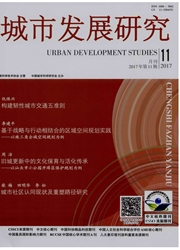

 中文摘要:
中文摘要:
研究不确定条件下既有建筑节能改造项目投资决策方法,为投资主体提供全面、客观的投资收益评估方法,是顺应全面建筑节能改造形势,体现投资理性和灵活性的客观要求。对影响既有建筑节能改造项目投资决策的内外部不确定因素进行深入挖掘,将其随机波动特征的量化分析结果引入到项目投资决策分析中,兼顾生命周期成本、节能量、碳排放量和室内舒适性四项优化准则,构建不确定条件下既有建筑节能改造项目成本收益优化模型,探索在不确定条件下节能改造技术方案与较长投资期限内各项成本收益的动态量化关系,为投资主体选择和确定长期的、多阶段的最优投资规模和改造技术方案提供决策依据,为解决既有建筑节能改造项目投融资乏力问题提供新的研究视角。有助于提高既有建筑节能改造项目投资效益,确保既有建筑节能改造项目顺利实施。
 英文摘要:
英文摘要:
Following the overall building energy-saving situation in China and reflecting the investment rationality and flexibility, the paper aims to investigate the investment decision methods of existing building energy efficiency retrofitting (EBEER) projects under uncertainty to facilitate comprehensive and objective investment assessment in such projects. In this paper, the internal and external uncertainties affecting energy efficiency investment are identified and their random fluctuation characteristics are qualified and introduced into the analysis of investment decisions. By taking into account life-cycle costs, energy savings, carbon emission and thermal comfort, a project revenue optimization model under uncertainty is established to explore the dynamic quantitative relationship between energy-saving technology solutions and the costs and benefits over a long investment horizon for EBEER projects. By means of optimizing analysis, the multi-stage optimal investment scales and energy-saving technology solutions for EBEER projects are achieved. This paper will provide a new perspective for solving EBEER projects' investment and financing fatigue to contribute to the investment returns and the smooth implementation of EBEER projects in China.
 同期刊论文项目
同期刊论文项目
 同项目期刊论文
同项目期刊论文
 期刊信息
期刊信息
